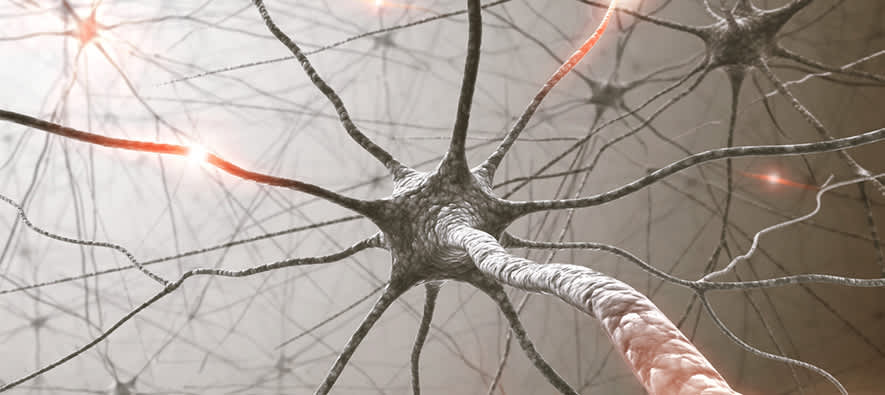
Understanding the Role of Orexin in Sleep and Wakefulness
September 18, 2020
Discovered about 20 years ago, orexin (also known as hypocretin), is a neurotransmitter that is now often considered the master regulator of the sleep-wake cycle.1,2 Orexin is most notably implicated in narcolepsy type 1 (NT1) -- a life-long, neurologic condition that is caused by loss of neurons in the brain that produce orexin.2 NT1 is characterized by the brain’s inability to regulate sleep and wake cycles as well as cataplexy, or the sudden loss of muscle tone that’s usually triggered by strong emotion.3
Takeda is researching orexin and its role in a broad spectrum of sleep-wake disorders that are characterized by excessive daytime sleepiness (EDS), including narcolepsy and idiopathic hypersomnia.
In September 2020, the 25th Congress of the European Sleep Research Society (ESRS) will be hosted virtually. Held biennially, ESRS is designed to facilitate the dissemination of information regarding sleep research and sleep medicine. At ESRS this year, Takeda will share updates from our orexin program with four ePoster presentations featuring clinical and preclinical data from our investigational orexin agonists.
We’ll be presenting two ePosters sharing clinical data from our orexin agonist, TAK-925 Phase 1 studies, including results that build upon early proof of concept study in individuals with NT1, as well as additional data in narcolepsy type 2 (NT2). We will also be presenting preclinical data investigating our orally administered orexin agonist.
Collectively, the results of these studies add to the growing body of evidence evaluating Takeda orexin agonists in sleep-wake disorders and support further investigation in clinical studies, which are ongoing.
The first day of ESRS, September 22, coincides with the 2nd Annual World Narcolepsy Day, a global awareness initiative launched in 2019 by 24 patient advocacy organizations across six continents. On this day, we take a moment to recognize the approximately three million individuals worldwide who live every day with narcolepsy.4,5 At Takeda, we’re driven to make a difference for these individuals, their families, and the greater community and are proud to partner with the scientific, medical and regulatory community to work towards building a better overall understanding of sleep-wake disorders.
If you or a loved one is concerned about narcolepsy, please consult your healthcare professional.
1 Lin L, Faraco J, Li R et al. The Sleep Disorder Canine Narcolepsy Is Caused by a Mutation in the Hypocretin (Orexin) Receptor 2 Gene. Cell. 1999;98(3):365-376
2 Mahoney CE, Cogswell A, Koralnik IJ, Scammell TE. The neurobiological basis of narcolepsy. Nat Rev Neurosci. 2019;20(2):83-93
3 MNishino S. Clinical and neurobiological aspects of narcolepsy. Sleep Medicine. 2007;8(4):373-399
4 Guilleminault C, Brooks SN. Brain. 2001;124(8):1482-1491
5 United Nations Population Fund. World Population Dashboard. https://www.unfpa.org/data/world-population-dashboard. Accessed July 7, 2020.
